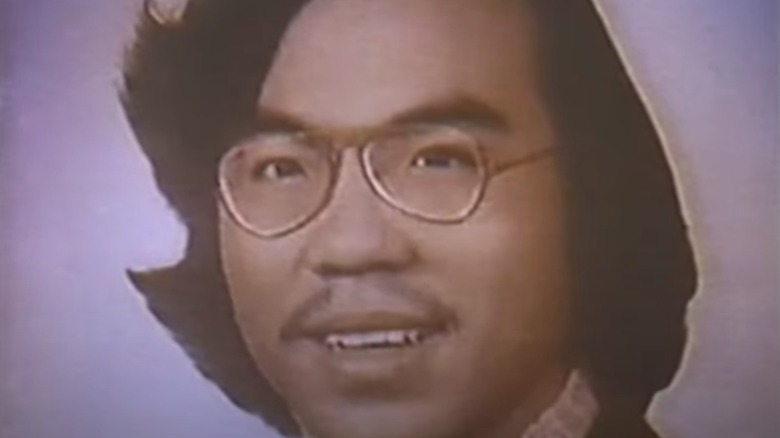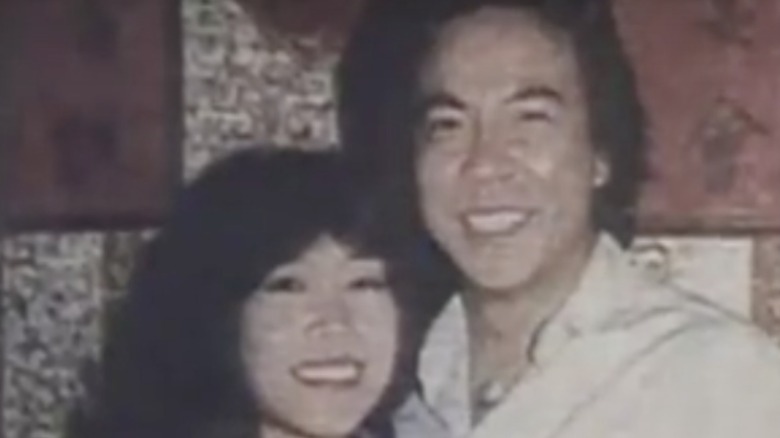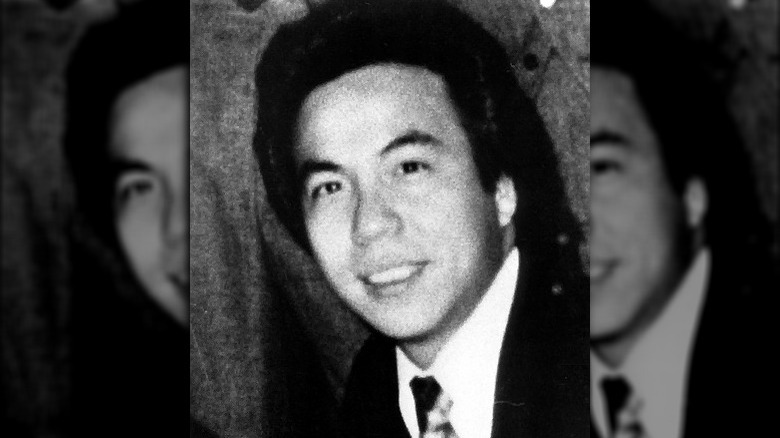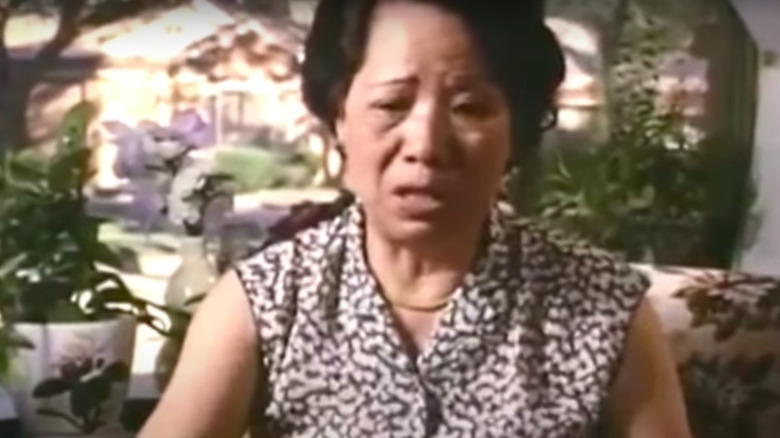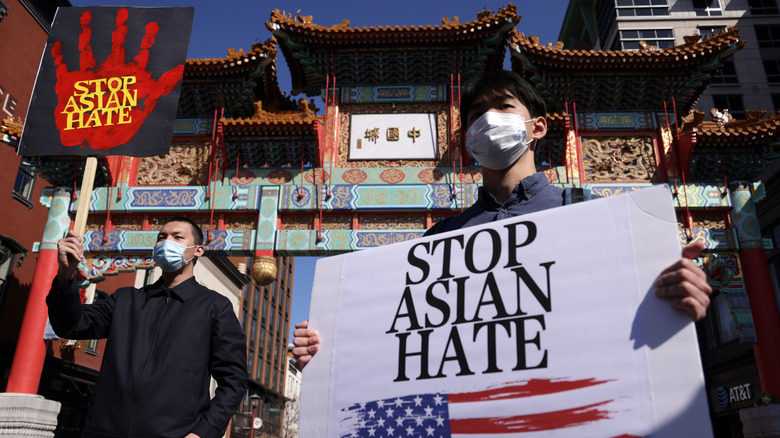The Tragic Murder Of Vincent Chin
The United States reportedly has a long history of Asian state-sanctioned discrimination, per National Geographic. And in 1982, Vincent Chin tragically became a national symbol among Asian Americans for the violence that is born out of racist ideologies. At the time Chin was murdered, anti-Japanese sentiments were being stoked in the United States, since Japanese car companies were seemingly doing better than the American ones.
Chin's white attackers didn't care that he wasn't Japanese or that Asian Americans had nothing to do with the layoffs in the auto industry, but they reportedly believed the Japanese were responsible for their decline.
In the first quarter of 2021, attacks against Asian Americans spiked 164% across the United States, according to VOA News. With the spread of anti-Asian rhetoric during the pandemic, some Asian Americans wondered "it's not paranoid to wonder if there will be another Vincent Chin." Horrifically, the 2021 Atlanta spa shootings may have proved that their fears were all too real. This is the tragic murder of Vincent Chin.
The decline of the Big Three
The Big Three refers to Chrysler Stellantis, Ford Motor Company, and General Motors, the largest automakers in the United States. Headquartered in Detroit, Michigan, these companies once dominated the world's auto industry, but in the 1970s, they started to lose their grip as oil prices rose and Japanese imports started commanding the market, per NPR.
CarThrottle writes that with rising oil prices, American car companies were forced to "replace the large engines with smaller, more fuel efficient units." However, since the cars retained their heavy forms, they "achieved no more than 17.5 MPG." In comparison, cars produced by Honda, Nissan, Subaru, and Toyota were smaller and able to make "more efficient use of their 4 cylinder engine." Plus, a main selling point was the fact that AM/FM radio and air conditioning were included in a standard car, compared to paying extra for them in American models.
By the 1980s, American automakers were closing or exporting plants and there were mass layoffs across the country, according to NPR. Meanwhile, in "Vincent Chin's Story/Lily Chin," Helen Zia writes that "many businesses and political leaders pointed their fingers toward the Pacific and blamed Japan, inciting racial-hatred against anyone who looked Japanese, rather than taking responsibility for their own failed policies."
Who was Vincent Chin?
Vincent Chin was born in Guangdong province in 1955 and came to the United States when he was 6 years old, per the Duke Chronicle. He was adopted by Lily Chin and Bing Hing "David" Chin, who had also immigrated to Highland Park, Michigan, from China in 1947. According to "Vincent Chin's Story/Lily Chin," Chin's parents worked in a small laundry before working in a Chinese restaurant, and after Bing Hing retired, Lily started working in a factory.
In 1982, the 27-year-old Chin was working at Efficient Engineering in addition to a restaurant job on the weekends. Engaged to be married to Vickie Wong, his girlfriend of three years, Chin was looking forward to celebrating his bachelor party in Highland Park with his friends on a June night. But tragically, because of two racist men, the week of Chin's wedding ended up becoming the week of his death. His last words were reported to be "It's not fair."
'It's not fair'
On June 19, 1982, Chin celebrated his bachelor party with his friends Jimmy Choi, Gary Koviu, and Robert Siroskey at the Fancy Pants strip club. According to Rumble, "Ronald Ebens, a general foreman at Chrysler, and his stepson, Michael Nitz, a laid-off Chrysler worker" were also there, and Chin caught their attention after giving one of the strippers a "generous tip."
Ebens yelled over, "Don't pay any attention to those little f——, they wouldn't know a good dancer if they'd seen one." Witnesses also claim that Ebens said, "It's because of you little m—f—s that we're out of work," writes NBC. Ebens claims the opposite: Chin gave the Black dancer a smaller tip, and he was defending her.
This led to a fight in the club that escalated in the parking lot. There, Nitz pulled a baseball bat out of his car, at which point Chin and his friends ran away.
Nitz and Ebens hunted for Chin for almost 30 minutes before they found him outside a McDonald's restaurant. Upon catching him, Nitz held Chin while Ebens beat him with the baseball bat, striking his legs, chest, and skull, per The Philadelphia Inquirer.
Although Nitz and Ebens were taken into custody, they were released that day. After slipping into a coma, Chin died four days later on June 23.
Charged in federal court
Although Ebens and Nitz were charged with second-degree murder, they pled down to manslaughter and were sentenced to three years probabtion and a fine of $3,000. According to NPR, this lenient sentencing angered "the entire Asian American community" and American Citizens for Justice was created as a result to protest the sentencing.
Protests across the country convinced the federal government to intervene, and in 1984, Ebens and Nitz were indicted in the "first federal civil rights trial for an Asian American." Although Nitz was acquitted in the 1984 trial, Ebens was found guilty and sentenced to 25 years in prison. After appealing this verdict, Ebens was found not guilty in the 1987 retrial, per The Philadelphia Inquirer.
According to "The Dark Side" by Young Park, in 1987 a civil suit for the unlawful death of Vincent Chin was also settled out of court. Nitz was ordered to pay $50,000 over the course of 10 years. Meanwhile, Ebens was ordered to pay over $4 million, but "these payments were never paid."
After the legal cases ended, Chin's mother Lily moved back to China; "it was just too sad for her to stay in America."
The legacy of Vincent Chin
Although there was little justice in the trials for Chin's murder, the activism it spurred "transformed a biracial discussion on race relations to be a multiracial one," Roland Hwang, co-founder and former president of American Citizens for Justice, told NBC. NPR also writes that it created a shared consciousness about activism. Activist Helen Zia says that "civil-rights law has changed because of the Vincent Chin case."
However, in the wake of the Atlanta spa shootings on March 16, many Asian Americans across the country felt a sickening feeling of déjà vu, per The Spokesman-Review. When the first sentence was given to Ebens and Nitz, the president of the Detroit Chinese Welfare Council called it "a license to kill for $3,000," according to The New York Times.
Forty years later, after a white man murdered six Asian women — Hyun Jung Grant, Xiaojie Tan, Sun Cha Kim, Soon Chung Park, Yong Ae Yue, and Daoyou Feng — as well as two white people — Delaina Ashley Yaun and Paul Andre Michels — his actions were explained with "a really bad day," writes Public Source. This was ultimately the same excuse widely used to justify Chin's murder, opines NBC. "Ebens and Nitz were fed up; they were at the end of their rope; they just had a bad night."
